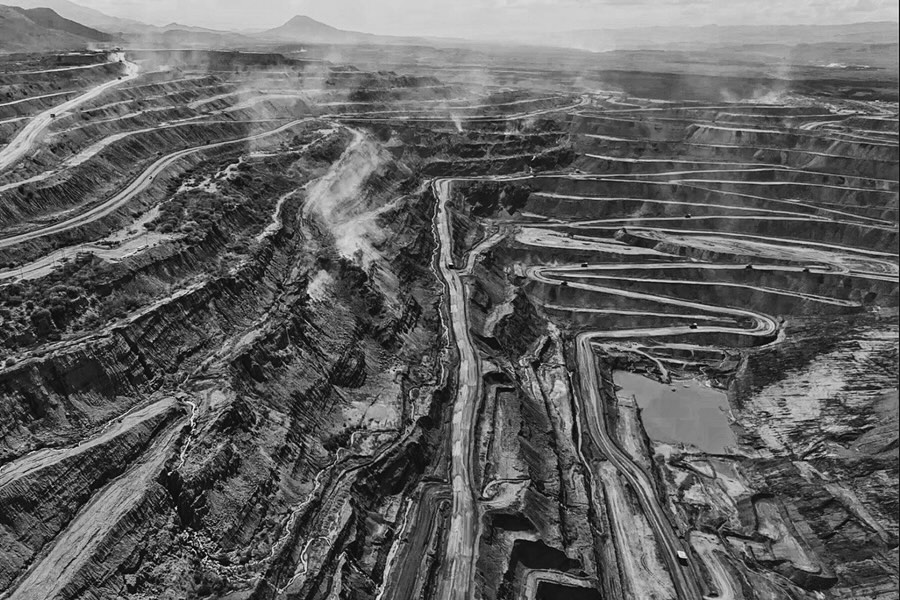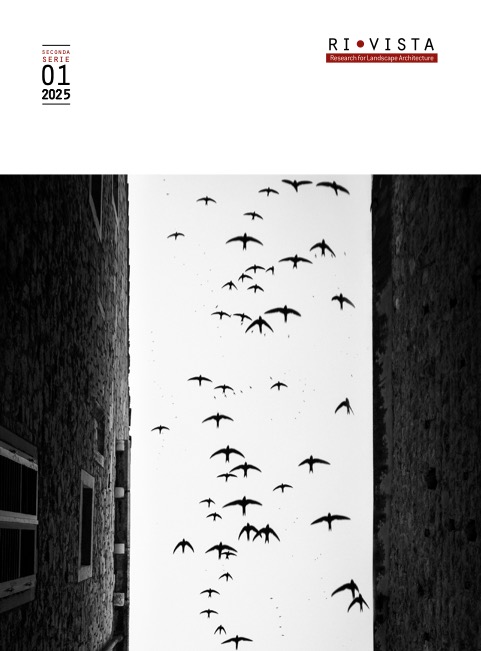About
POST CARBON
Edited by Paolo Picchi, Gabriele Paolinelli, Sven Stremke
Call for Papers

Foto: Alejandro Valbuena H., @Power of Landscape
Carbon Neutrality refers to theoretical positions and design practices aimed at stopping greenhouse gas emissions in response to the global climate crisis. This is a recognized aim in Architecture, as regards both design theories and the implementation of advanced buildings. Yet in Landscape Architecture research and practice this topic is still under-explored, in particular with regards to the potential cross cooperation with other disciplinary fields. This is striking, since the International Federation of Landscape Architects (IFLA) has declared that over 70,000 landscape architects around the world are taking action as global citizens to limit planetary warming to 1.5° C... Read More...
The call is open until November 30th 2025
Visit our CALL FOR PAPERS SECTION page or download the PDF (ita/eng)
Ri-Vista is an open access, peer-reviewed six-monthly scientific journal in electronic format, ranked in “Class A” by ANVUR - Italian National Agency for the Evaluation of Universities and Research Institutes. Founded in 2003, the second series was launched in 2015, when Ri-Vista became part of the scientific journals of the University of Florence. The journal does not ask any charges neither from authors nor readers and operates through international calls for papers and double-blind peer review.
Ri-Vista deals with the multiple dimensions of landscape planning and design, seen from a rich variety of disciplines, in a scientific and open perspective which is distinctive of landscape architecture. Each issue aims at gathering knowledge and visions around specific topics, promoting innovative and responsible actions for creation, protection, restoration and management of landscapes.
Editor-in-Chief:
Emanuela Morelli, Università di Firenze, Italy
issn: 1724-6768
Ri-Vista is indexed in:




Current IssueVol 23, No 1 (2025): Aperto. Per un ritratto dello spazio aperto / Open. For a portrait of open space
Published October 28, 2025
Issue Description
Open space, a living site of interaction between nature, memory, and society, is now a strategic resource for addressing ecological and urban challenges. Too often considered as empty or marginal, it reveals instead a structural, poetic, and transformative potential.
When we launched the call for this issue of Ri-Vista over a year ago, our aim was to “to collect images, experiences and reflections for a reading that acknowledges the freedom and diversity of every open space, both in its individuality and in its belonging to more complex systems”, in search of those somatic and ontological features that would outline a portrait of it. What emerged does not outline clear or univocal features. Nevertheless, this issue explores the deep value and design potential of open space th... More


